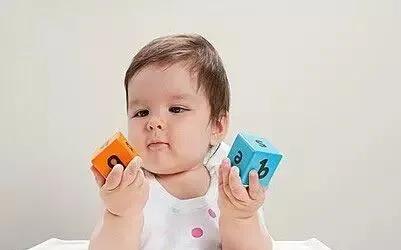Concentration is the foundation of all learning. Good concentration is a strong guarantee for babies to learn in the future, and concentration is not innate, it needs to be cultivated the day after tomorrow. The older the child, the more it can reflect the importance of concentration, and 5-10 years old is a key period for cultivating concentration!

What is child's concentration?
Concentration is what we often call attention, for children, it means that they can focus their senses such as sight, hearing, and touch on a certain thing to achieve the purpose of knowing the thing.
How long can my child's focus be maintained?
2 years: 7 minutes
3 years: 9 minutes
4 years: 12 minutes
5-6 years: 14 minutes
7-10 years: 20 minutes
10-12 years old: 25 minutes
Over 13 years old: 30 minutes
It can be seen that the younger the age, the weaker the ability to concentrate, and it is unscientific to try to require a 3-year-old child to be able to focus on one thing for 15 minutes.
Why is my child's attention time short?
Physiological causes:
Infants and young children's brains and nervous systems are not mature, and the brains and nervous systems are organs that integrate higher adaptive functions—thinking, intelligence, and language.
Other factors:
Causes of illness: hearing/visual impairment, lead poisoning
Physiological causes: lack of sleep
Environmental causes: Confusion/noisiness/excessive interference
Food Causes: Eating foods that contain too much caffeine is nutritionally unbalanced
Parenting reasons: too much pampering, too many toys, frequent socializing
A critical period for developing concentration?
Develop concentration from the age of 4. Before the age of 4 is a critical period for cultivating your baby's learning ability, and 5 to 10 years old is a critical period for developing attention. A child's early education is not the study of ABCD, but the cultivation of willpower, character and concentration.
How do you develop your child's concentration?
(1) Make full use of your child's curiosity
In this world, there are many new things that children have never seen and heard of, and their unique charm attracts curious children and arouses their great attention. Therefore, we can make full use of our children's curiosity to cultivate concentration.
(ii) Combine the cultivation of children's interest with concentration
Interest is the best teacher, and people will always be very engaged and attentive when doing things that interest them. For young children, their attention is directly controlled to some extent by their interests and emotions. Therefore, we should pay attention to combining the cultivation of children's broad interests with the cultivation of concentration. The stronger a child's interest in things, the easier it is for their stable, focused attention to form.
(3) Train children's concentration in games
Psychologists in the former Soviet Union once did such an experiment: let young children in the game and simply complete the task of the two different ways of activity, the various colors of paper in the same color of the box, to observe the child's concentration time. The experimental results found that 4-year-olds could last for 22 minutes in the game, and 6-year-olds could last 71 minutes, and the number of notes was 50% more than when the task was simply completed. In the form of simply completing the task, 4-year-old children can only persist for 17 minutes, and 6-year-old children can only persist for 62 minutes.
Experimental results show that children have strong concentration and stability in play activities. Therefore, we can let children carry out more game activities and cultivate children's concentration in games.
(4) Let the child clarify the purpose of the activity and consciously concentrate
The more deeply the child understands the purpose and meaning of the activity, the stronger the desire to complete the task, and the more concentrated the attention during the activity, and the longer the attention is maintained. For example, if a child who usually eats procrastinating and carelessly eats, if you promise him to eat well and give him a reward after completing the task, he will definitely put his mind at ease and concentrate on eating seriously.